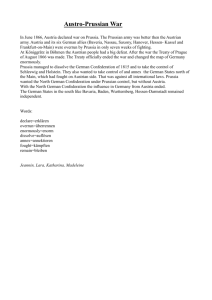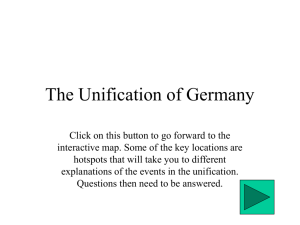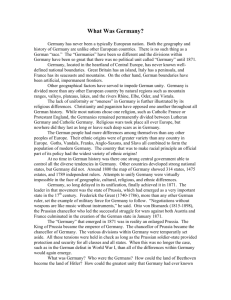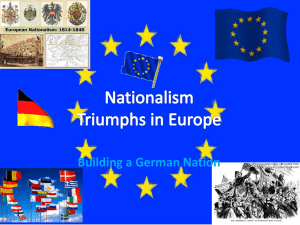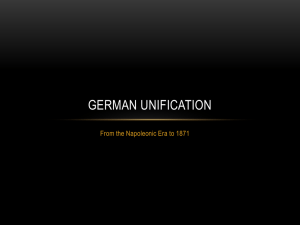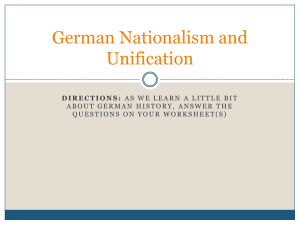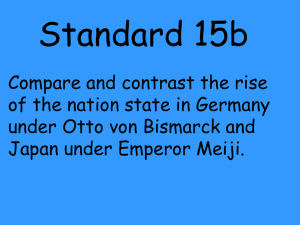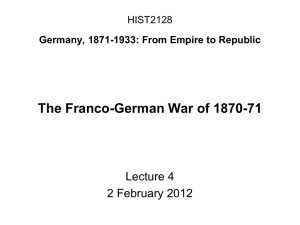Additional Reading for German Unification
advertisement
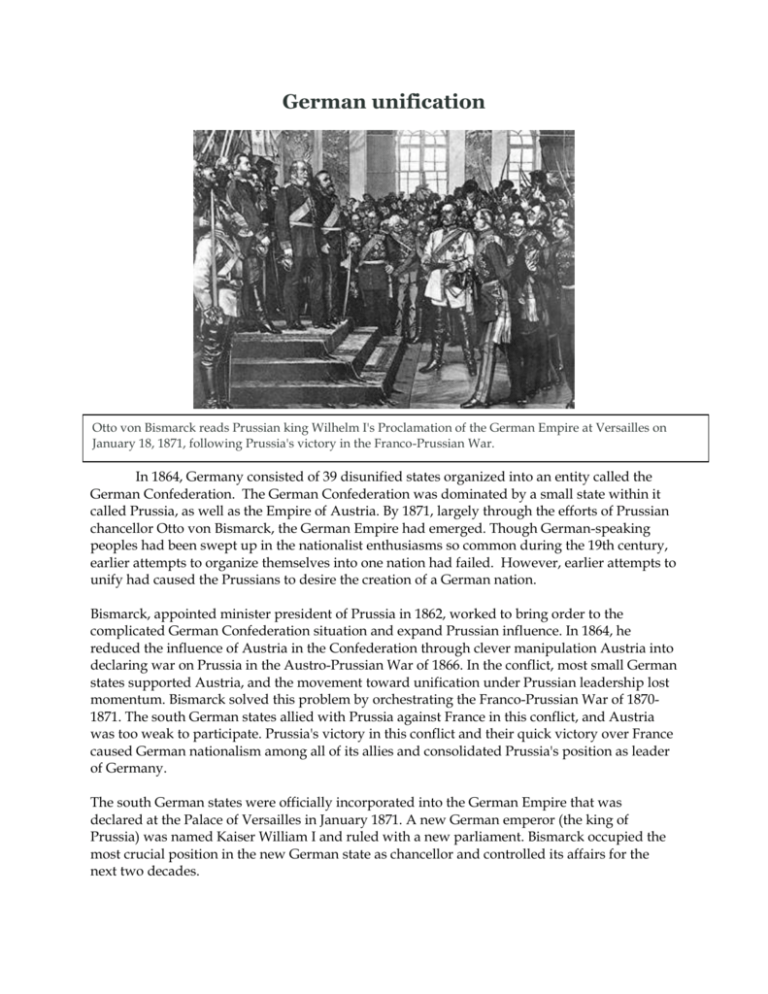
German unification Otto von Bismarck reads Prussian king Wilhelm I's Proclamation of the German Empire at Versailles on January 18, 1871, following Prussia's victory in the Franco-Prussian War. In 1864, Germany consisted of 39 disunified states organized into an entity called the German Confederation. The German Confederation was dominated by a small state within it called Prussia, as well as the Empire of Austria. By 1871, largely through the efforts of Prussian chancellor Otto von Bismarck, the German Empire had emerged. Though German-speaking peoples had been swept up in the nationalist enthusiasms so common during the 19th century, earlier attempts to organize themselves into one nation had failed. However, earlier attempts to unify had caused the Prussians to desire the creation of a German nation. Bismarck, appointed minister president of Prussia in 1862, worked to bring order to the complicated German Confederation situation and expand Prussian influence. In 1864, he reduced the influence of Austria in the Confederation through clever manipulation Austria into declaring war on Prussia in the Austro-Prussian War of 1866. In the conflict, most small German states supported Austria, and the movement toward unification under Prussian leadership lost momentum. Bismarck solved this problem by orchestrating the Franco-Prussian War of 18701871. The south German states allied with Prussia against France in this conflict, and Austria was too weak to participate. Prussia's victory in this conflict and their quick victory over France caused German nationalism among all of its allies and consolidated Prussia's position as leader of Germany. The south German states were officially incorporated into the German Empire that was declared at the Palace of Versailles in January 1871. A new German emperor (the king of Prussia) was named Kaiser William I and ruled with a new parliament. Bismarck occupied the most crucial position in the new German state as chancellor and controlled its affairs for the next two decades.
